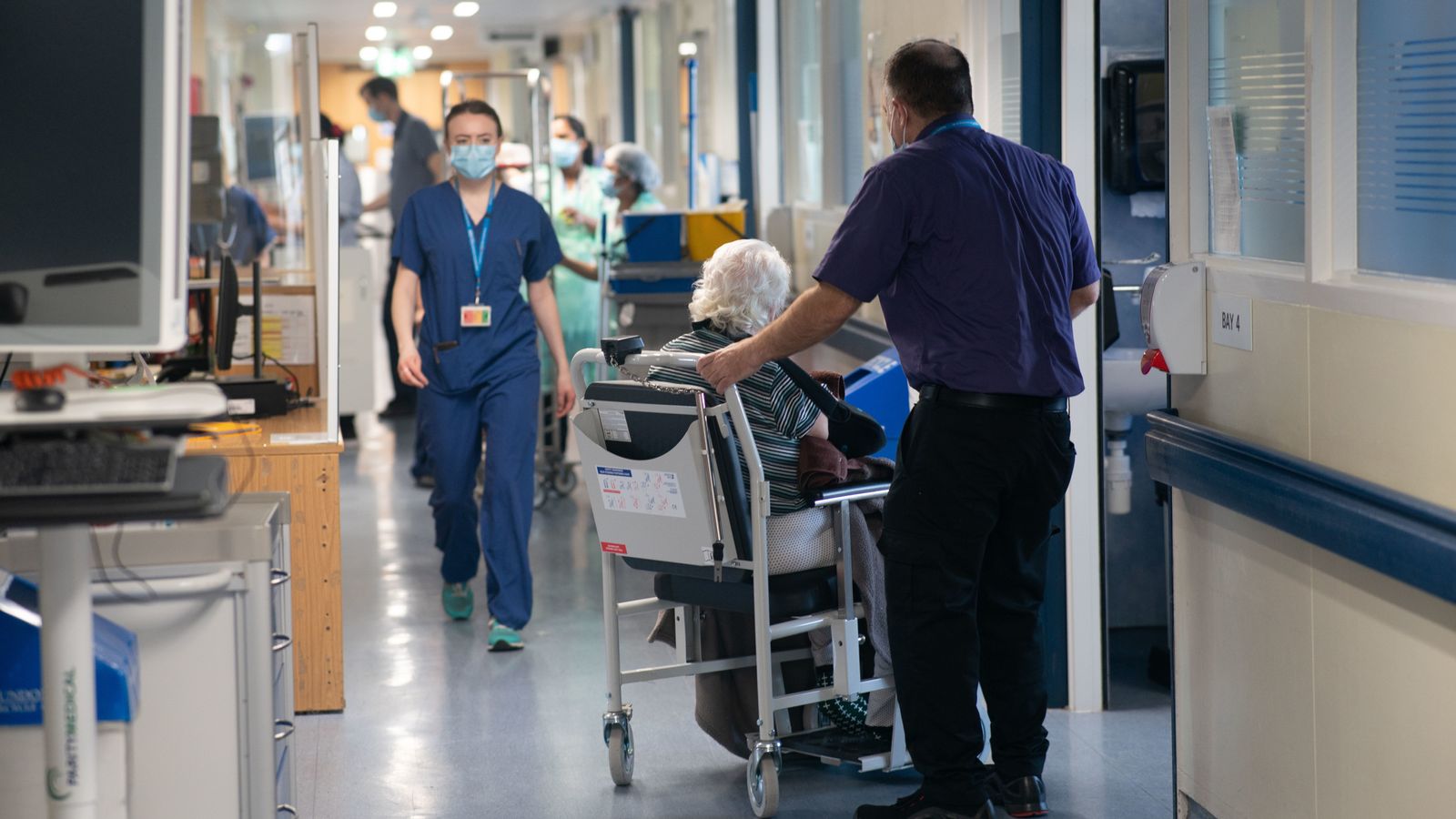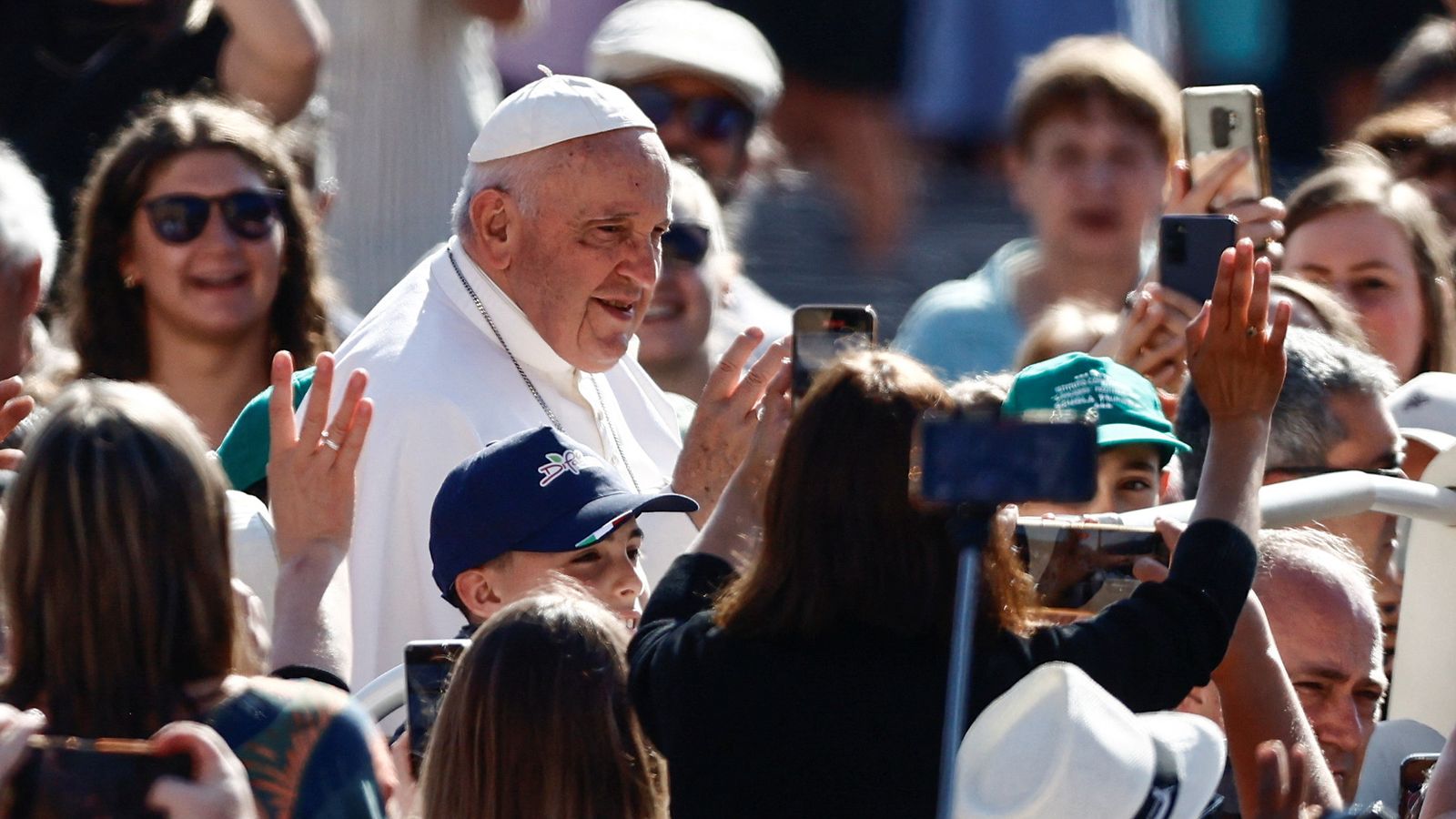The health secretary has insisted the plan to reduce the NHS backlog “is working” despite missing a key target to eliminate 18-month waits.
Steve Barclay admitted the goal to eliminate year-and-a-half waits for hospital treatment by April had been missed “by a very narrow margin”.
But he said the government had cut the list by more than 90% and the plan to clear the record-high backlog “is working”.
He told Sky News: “We cut (18-month waits) by over 90%. We got it to under 11,000 by the end of March.
Politics latest: Rwanda flights could begin ‘as soon as late September’
Be the first to get Breaking News
Install the Sky News app for free
“If you look at that compared to, for example, Wales, where it was around 70,000 patients waiting 18 months in Labour-run Wales and we’ve got a population in England 18 times the size of Wales, a huge amount of progress was made.”
He added that two-year waits were cleared in the summer and it “shows the plan is working”.
The number of people in England waiting to start hospital treatment rose to a new high in March with the backlog at a record 7.3 million.
Mr Barclay said this was a “consequence of the pandemic” and the next focus was ending year-long waits for treatment.
“We’re really focused on what more we can do to get those numbers down. But the plan is working,” he said.
However, he declined to say what number the government would get the backlog down to by the next general election.
Please use Chrome browser for a more accessible video player
Read More:
£40m pilot scheme launched to increase access to weight-loss drugs and cut NHS waiting lists
GPs will have to give patients options to travel further or go private to tackle NHS backlog
Rishi Sunak has made cutting NHS waiting lists one of his five priorities – but recent polling has shown the public thinks he is failing on all fronts.
The task has been hampered by chronic staff shortages and ongoing junior doctors’ strikes, with a four-day walkout in April resulting in nearly 200,000 appointments and operations being cancelled.
The BMA has threatened to stage industrial action all summer if the government doesn’t improve its “paltry” 5% pay offer, with a three-day strike planned for later this month.
Mr Barclay admitted there is still “distance” to go before an agreement is likely reached with the BMA union, which has been asking for a 35% pay “restoration” to make up for a decade of real-terms pay-cuts.
He said that is “not a reasonable ask” but the government had set out an offer and “stands ready to engage with them further”.
“It was the junior doctors suddenly who broke up the talks, who then decided to have further strike action. We want to continue a discussion, but I don’t think a 35% pay rise is reasonable.”








